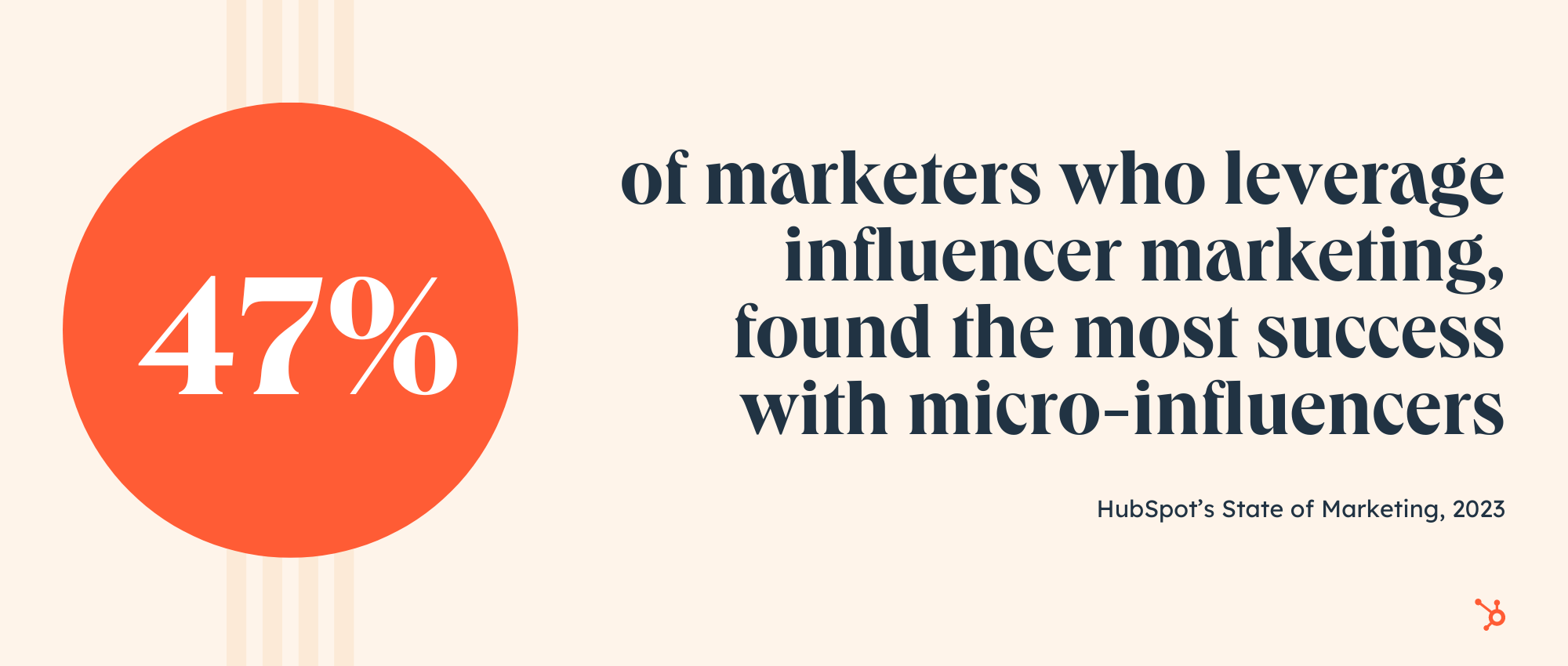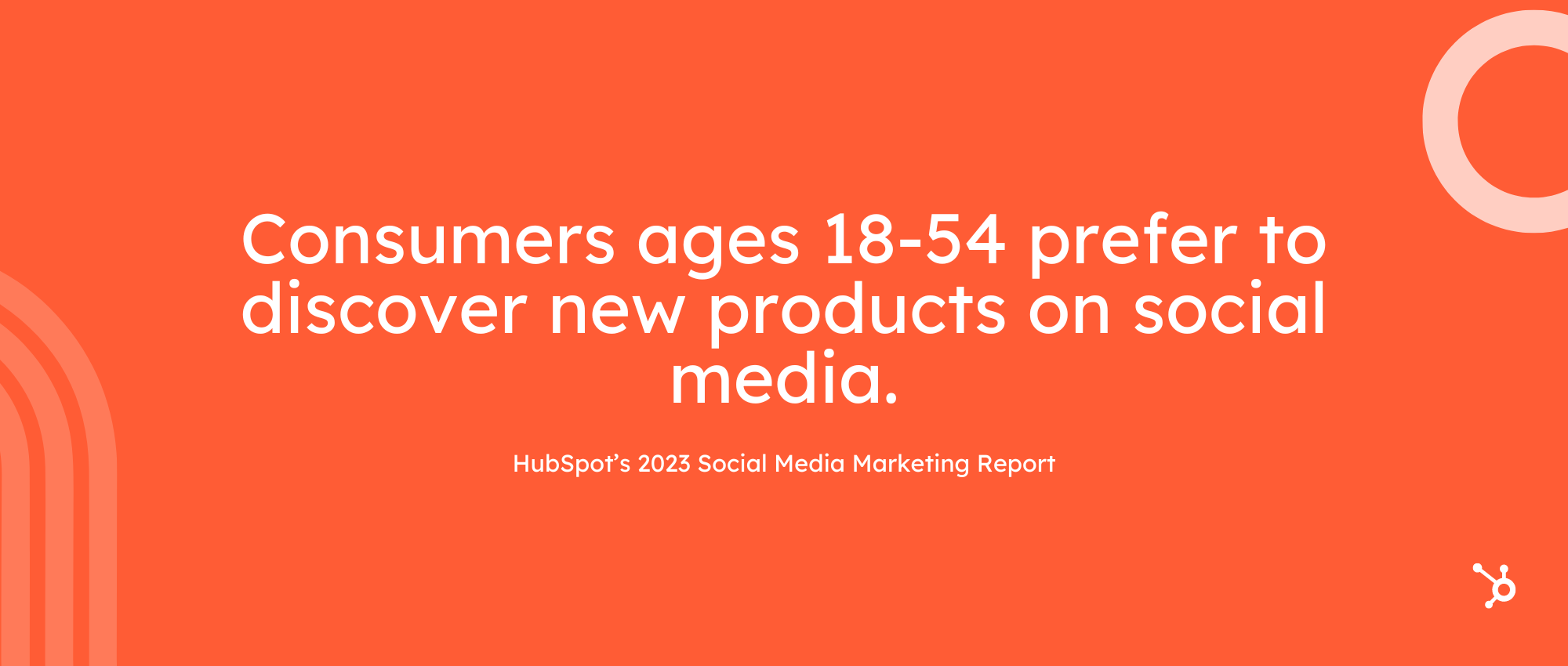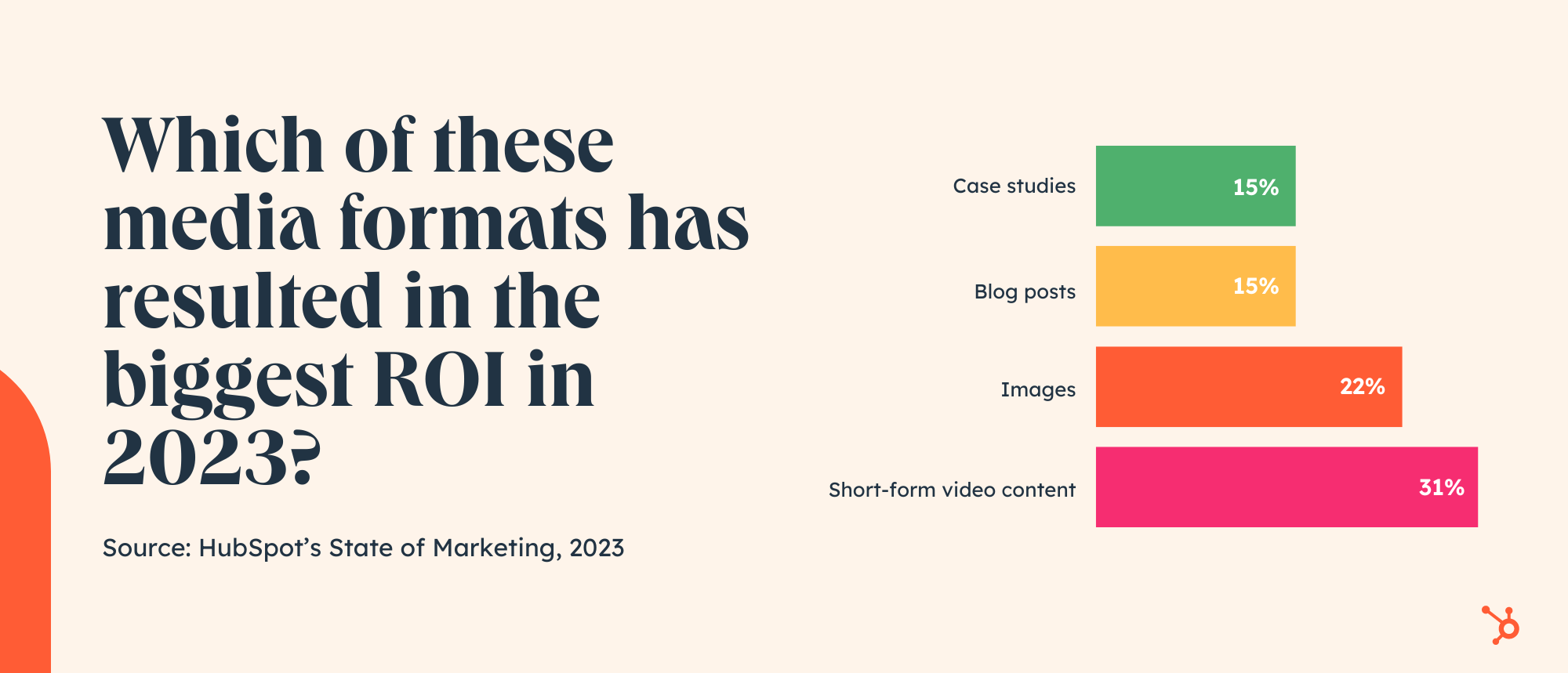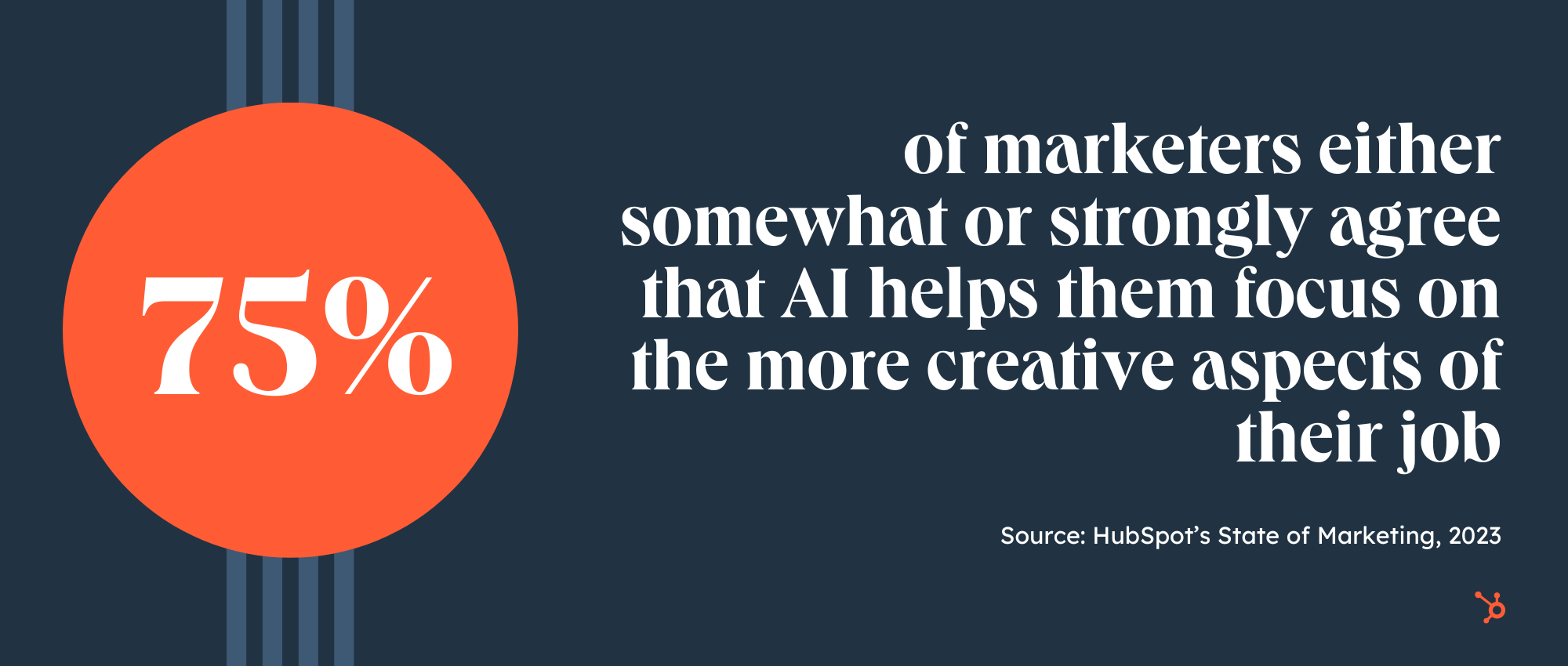Q1 Marketing Plays That’ll Start Your Year Strong, According to State of Marketing Data
- January 27, 2024
- Knowledge Base
- 0 Comments

Ah, quarter one. It’s a time when many of us reflect on the last year, make new bets, and refresh our playbooks. If the fourth quarter is about finishing strong, then the first quarter is about starting smart.
It’s an exciting time but also a bit overwhelming. You have new goals to reach and new strategies to execute. You also need to create enough room to pivot at a moment’s notice.
But have no fear – here, I’ve rounded up seven data-backed strategies for nailing Q1, as well as Q1 marketing tips from HubSpot experts. Let’s dive in.
Data-Backed Marketing Strategies for Q1
- Interested in influencer marketing? Start with micro-influencers.
- Approach social media as an ecommerce platform.
- Double down on short-form video content.
- Up-level your customer service with a multi-channel strategy.
- Leverage AI tools for productivity.
- As AI streamlines the content creation process, have safeguards in place.
- Social responsibility isn’t going out of style.
1. Interested in influencer marketing? Start with micro-influencers.
Half of marketers plan to increase their influencer marketing investment in 2024. If you’ve always wanted to work with influencers — but the price tag seems out of reach — I have some good news.
Among marketers who leverage influencer marketing, nearly half (47%) found the most success with micro-influencers. These are influencers who have anywhere from 10,000 to 100,000 followers. While these creators don’t have millions of followers, they hold influence with a smaller, more engaged community.

In fact, when asked about the biggest benefits of working with micro-influencers, 42% of marketers say micro-influencers are less expensive, followed by 39% who say micro-influencers give access to more niche communities.
Want to learn more about working with micro-influencers? Check out this helpful guide.
2. Approach social media as an ecommerce platform.
Websites like Amazon, Walmart, and eBay have been the top dogs in the ecommerce space for decades. But now we’re seeing social media platforms — like Instagram, TikTok, and Facebook — evolve into shopping destinations, creating new opportunities for marketers.
50% of marketers plan to increase their investment in social commerce in 2024, and 14% plan to leverage it for the first time this year.
On the consumer side, 67% have already bought through social media platforms. What’s more, consumers ages 18-54 prefer to discover new products on social media. Personally, I’ve purchased far too many products on TikTok than I care to mention, so it’s nice to know I’m not alone.

What makes social media such an effective ecommerce channel is that it gives marketers access to a pretty wide net of people. This enables them to tap into audiences who are already engaged, which is ideal for brand building and product discovery.
On top of that, running influencer campaigns on social media is becoming much more streamlined; influencers drive awareness to products, and users can purchase them without ever leaving the app.
But, most importantly, platforms like Facebook and Instagram offer powerful analytics, enabling marketers to reach their audiences for maximum impact.
3. Double down on short-form video content.
Short-form video continues its reign on social media, with 53% of marketers planning to increase their investment in 2024. It’s also the trend marketers are investing in the most this year, outpacing influencer marketing, podcasting, and live-streaming.
But wait, there’s more: short-form video generated the most ROI from any media format for marketers last year, closely followed by images. It’s clear that audiences love visual content, and platforms like TikTok and Instagram can help you amplify it.

Short-form video isn’t necessarily new (remember Vine, anyone?). But it’s quickly proven itself as an effective marketing format. It’s relatively low-cost — if at all — with quick turnaround times. This allows marketers to jump on trends and showcase their brand’s personality. It also fits within the fast-paced social media landscape where attention spans are short.
4. Up-level your customer service with a multi-channel strategy.
For 1 in 4 marketers, providing customer service through social media became more important in 2023, and I predict this trend will carry into this year.
In fact, 50% of marketers plan to continue the same investment in social media as a customer service tool in 2024, whereas 33% plan to increase their investment.
If this trend tells us anything, it’s that elevating your customer service to a new level requires adopting a multi-channel strategy. While the more traditional channels (e.g., phone and email) are far from over, you want to take advantage of other opportunities to connect with your customers, like social media direct messages, live chats, and more.
Not only does a multi-channel strategy offer more convenience to customers, but it also allows them to engage and interact with your brand in the way they prefer.
5. Leverage AI for productivity.
AI: it was seen as a threat to marketers at first, but now the conversation is changing. Oddly enough, artificial intelligence has given most people, marketers or not, a greater appreciation for human creativity and inventiveness.
AI can’t replicate that (at least convincingly), but it can assist us in the process. This is why 75% of marketers either somewhat or strongly agree that AI helps them focus on the more creative aspects of their job.

One way AI is supercharging productivity is by taking the more monotonous and tedious work off marketers’ plates. 78% of marketers agree that AI helps them spend less time on manual tasks like data entry and scheduling meetings. AI also supports 40% of marketers with data reporting and 39% for research.
If you haven’t leveraged AI yet, it may be time to explore ways to add it to your workflow. Check out this article if you need help figuring out where to start.
6. As AI streamlines the content creation process, have safeguards to maintain quality.
If you read #5, I explained how AI can be helpful to marketers wanting to boost their productivity — but now I need to add a big caveat.
While AI is helpful to marketers, it’s far from infallible. AI writing tools like ChatGPT, for example, are trained on limited data, so they may generate outdated or inaccurate content. And, obviously, the last thing you want to do is publish outdated or inaccurate content.
Luckily, most marketers are aware of these shortcomings. 67% of marketers agree that AI sometimes offers incorrect information. However, only 27% of marketers are “very confident” they would know if the information AI produced was inaccurate.
The solution isn’t to stop using AI altogether, but to have guardrails in place to maintain the quality of your content, reports, and so on. Always have a human editor to review your materials and double-check for any inaccuracies with quotes and statistics. For more tips, visit this article.
7. Social responsibility isn’t going out of style.
For a quarter (25%) of marketers, creating content that reflects their brand values was the biggest change in the marketing industry from 2022 to 2023.
Fast forward to today, and 45% of marketers plan to increase their investment in this type of content this year.
Brands recognize that value-driven content isn’t just a nice-to-have; it’s becoming essential for modern consumers. We often see enhanced brand loyalty and better business outcomes when consumers feel aligned with a brand and its values.
However, a key element in this strategy is authenticity. Today’s consumers are highly discerning and can spot when a brand is disingenuous. Ultimately, value-driven content is about building a genuine and sustainable connection with the audience, which requires a thoughtful approach.
Q1 Marketing Tips from HubSpot Experts
Embrace an elastic approach.
A big part of formulating a strong marketing strategy is understanding that it might change. This is why Drue Stinnett, Content Marketing Manager at HubSpot, recommends an elastic approach.
She told me, “Be adaptable and ready to pivot throughout the year. By embracing an elastic approach to your marketing efforts, you can quickly respond to market shifts, consumer feedback, and emerging opportunities.”
The ability to make quick pivots also gives you a more competitive edge. As Stinnett points out, “Adaptability also allows your strategies to remain effective within a fast-paced business landscape.”
Reflect on last year’s performance.
Marketers should be forward-thinking — of course – but this often entails looking back.
As Carly Williams, Head of Monetization at HubSpot, told me, “Before you dive right in, take a moment to reflect on last year’s performance and let go of strategies that didn’t show a return. This exercise will help you free up resources to support fresh ideas and success in the year ahead.”
In doing so, you can strike the right balance — innovating and trying new things where needed, but also recognizing and executing strategies that work well.
Go back to basics.
“To succeed in 2024, marketers will find themselves in exploration mode,” Basha Coleman, Senior Program Manager at HubSpot, told me.
And if there’s one area you should continuously explore, it’s your target audience.
“Getting curious about your audience—what they like, and what they’re doing with the content that they like, and where they’re engaging with it, is going to be an evergreen strategy that marketers will find themselves coming back to throughout Q1 and the rest of 2024,” she adds.
Knowing your target audience is something that never goes out of style. But if your content isn’t sparking engagement — or you’ve noticed shifts in your audience’s behavior and preferences — it’s a good indication to revisit your audience and refresh your strategies accordingly.
Back to You
As we wrap up, remember that Q1 is about starting smart and staying flexible. 2024 already presents plenty of opportunity, so long as you stay creative, focused, and adaptable.
![Download Now: Free State of Marketing Report [Updated for 2024]](https://no-cache.hubspot.com/cta/default/53/b0f73a5e-16e4-41fd-9511-8564efc560a7.png)



